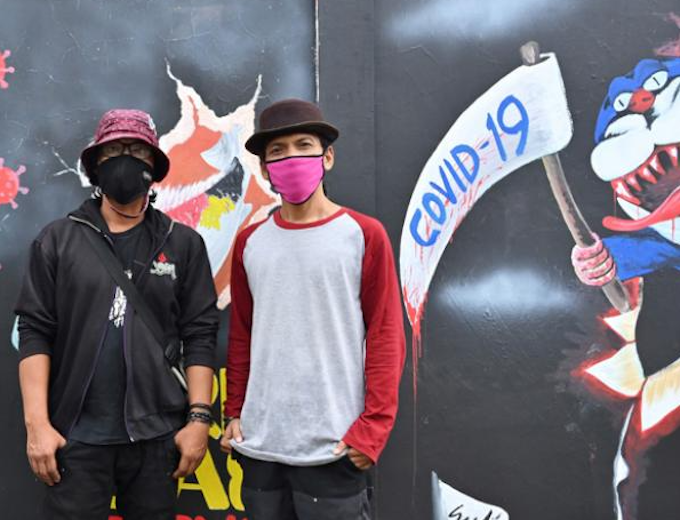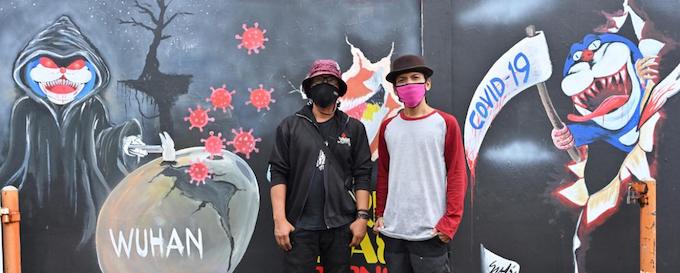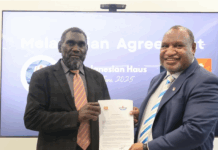
Reporters Without Borders (RSF) is alarmed to learn that Indonesia’s police have been ordered to combat not only disinformation about the coronavirus pandemic but also criticism of the president and government.
Linking the two is “very dangerous”, RSF says, calling on the police to allow journalists to work freely.
Journalists who criticise the government face the possibility of up to 18 months in prison under a directive that the head of the Criminal Investigation Agency, General Listyo Sigit Prabowo, issued on April 4.
READ MORE: Al Jazeera coronavirus live updates – Global death toll tops 150,000
- 63 Indonesian political prisoners – mostly Papuan – make urgent appeal
- PNG urge calm after Covid-19 case confirmed in capital Port Moresby
The directive orders the police to crack down on “coronavirus-related hoaxes,” “online frauds regarding the sales of health equipment” and finally – although it has no relation with the pandemic – “hostile information about the president and government.”
“In this directive, the Indonesian police are taking advantage of the need to combat disinformation linked to the Covid-19 pandemic in order to rein in journalists who might want to publish information critical of President Joko Widodo or his government,” said Daniel Bastard, the head of RSF’s Asia-Pacific desk.
“This constitutes an intolerable encroachment on press freedom, which is supposed to be guaranteed by article 28 of the 1945 constitution.
“We urge the police to allow journalists to work freely so that they are able to provide reliable and independent news coverage, which is absolutely crucial during this pandemic.”
Draconian legislation
Many journalists are meanwhile also concerned that the ruling coalition could take advantage of the coronavirus lockdown to get Parliament to approve a package of amendments to the penal code, some of which would endanger press freedom in Indonesia, especially articles 219 and 241, which criminalise criticism of the president and government.
The proposed amendments were submitted to Parliament last year but had to be shelved after a major wave of protests organised by civil society because of the threats to press freedom.
The deputy speaker of the lower house nonetheless announced on April 2 that the proposed amendments were again being examined in committee and would soon be submitted to a plenary session of the house.
Indonesia is ranked 124th out of 180 countries in RSF’s 2019 World Press Freedom Index.
Pacific Media Watch collaborates with Reporters Without Borders.













































